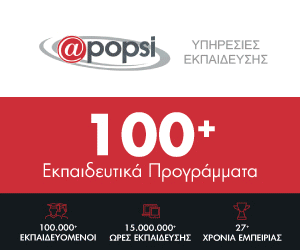VPS published a white paper covering one specific test parameter: the energy content of biofuels. Energy Content is a key parameter, representing the amount of heat transferred within the combustion chamber during the burn process and indicates the available energy from the fuel.
As explained, higher energy content results in higher power generation and better combustion efficiency. The energy content has a direct impact on fuel economy and greenhouse gas emissions, and is therefore an important parameter for Ship Operators to consider in preparation for the EU ETS. The paper covers a range of fuel types, from 100% FAME through to FAME blends with MGO, HFO and VLSFO.
The full VPS paper includes:
- Methods to Determine Energy Content in Marine Fuels.
- Methodology Applied to Compare Different Methods of Determining Energy Content.
- Comparison of Energy Content of HFO, VLSFO, MGO Samples and Biofuel samples.
- Significant conclusions relating to the energy content of marine biofuels.
VPS highlights that biofuels have the benefit of reducing greenhouse gas emissions as compared to conventional carbon-based marine fuels such as MGO, VLSFO and HSFO. However, the physical and chemical properties of biofuels vary considerably as compared to conventional fossil fuels. In addition, biofuels have more batch to batch and supplier to supplier variability as they are natural products.
As a result, biofuels have several characteristics which need to be measured to mitigate operational problems when used on board sea-going vessels. VPS has carried out significant research across numerous parameters that enable these characteristics to be measured and controlled. VPS research has shown that by using these test methods, biofuels can be used as drop-in fuels on board vessels enabling the benefits of such fuels to be realised in the shipping sector.
This paper refers to energy content, which is an important parameter of a fuel as it represents the amount of heat transferred within the combustion chamber during the burn process and indicates the available energy of the fuel. Higher energy content results in higher power generation and better combustion efficiency. The energy content of the fuel has a direct impact on the fuel economy and therefore greenhouse gas emissions. This paper covers a range of fuel types, from 100% FAME (Fatty Acid Methyl Esters) through FAME blended with MGO, VLSFO and HSFO.
Benefits of Knowing Accurate Energy Content for Ship Operators
Measuring the energy content in fuels is crucial for assessing fuel efficiency, managing operational costs, evaluating environmental impact, ensuring compliance, and maintaining engine performance and safety. It provides valuable information for ship operators to make informed decisions regarding fuel selection, consumption, and environmental responsibility, as detailed below:
- Fuel Efficiency: Determining the energy content helps assess the fuel efficiency of different marine fuels. By comparing the energy content of various fuels, ship operators can make informed decisions regarding the most efficient fuel options. Higher energy content fuels can potentially provide more power per unit volume or weight, resulting in improved vessel performance and reduced fuel consumption.
- Operational Costs: Energy content measurement directly affects the cost of operating a vessel. Fuel costs constitute a significant portion of the operational expenses for shipping companies. Measuring the energy content allows for accurate calculations of fuel consumption and cost estimates, enabling effective budgeting and financial planning.
- Emissions and Environmental Impact: The energy content of marine fuels is closely linked to the amount of carbon dioxide (CO2) and other greenhouse gas emissions produced during combustion. By measuring energy content, it becomes possible to estimate the emissions footprint of a vessel. This information is critical for compliance with environmental regulations and for monitoring and reducing emissions to mitigate the impact of shipping on climate change.
- Fuel Quality and Characteristics: Energy content measurement helps ensure the quality and performance of marine fuels. International standards and regulations, such as the ISO 8217 standard for marine fuels, set specific methods for calculating the energy content. Accurate measurements are required to detect any discrepancies, such as diluted or contaminated fuels, preventing potential operational and commercial issues or damage to ship engines.
- Performance and Safety: The energy content of marine fuels directly affects engine performance and safety. Engines are designed to operate optimally within specific energy ranges. Knowing the energy content helps ship operators ensure that the fuel being used matches the engine’s requirements, preventing issues such as poor combustion, reduced power output, or potential engine damage.
Source: safety4sea.co,


















